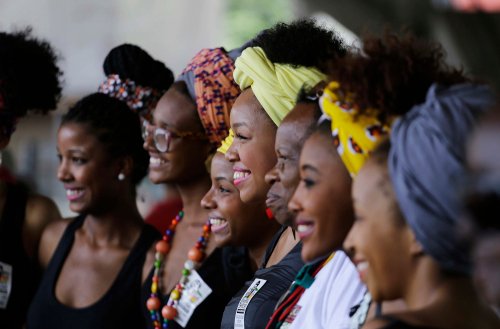Over the years, acknowledgement of the rights of women and girls has become increasingly central to development strategies across the world and in Africa more particularly.
Yaoundé (Brussels Morning) Does this represent a recognition of the value of women and girls and a desire to see them flourish? Does it reflect a real awareness of the importance of incorporating such acknowledgement in the mechanisms adopted for achieving the 17 Sustainable Development Goals (SDGs)? Or is it rather a way of winning the favourable opinion of the world and meeting the conditions for access to certain types of development funding? Regardless of the answer, what is undeniably clear is that the “developing countries” or countries with single-figure growth will not succeed in meeting the development targets set for 2035.
It is important to acknowledge that many African countries have now adopted legislation supportive of women’s rights, creating a legal and institutional framework propitious to their flourishing in social, cultural and environmental terms. But despite this promising picture and the positive impact on women’s everyday life, everything happens as if there were a complicity between these countries and their development aid partners, though it isn’t quite the case. Life experience has taught us that every time human rights are violated, it is women and children who are worst affected; every time that difficulties arise, crises of any kind, it is the poorest, the most vulnerable who suffer most, among them women and girls.
It’s an obvious error to think that these laws alone will suffice to protect and defend human rights; in the absence of a substantial and coherent programme of supporting measures capable of converting talk into concrete action, the great majority of African countries will not achieve the SDGs.
Sustainable development and human rights are closely linked, as several aspects of development impact on human rights. We must therefore ensure, for example, that education and health are accessible to all, everywhere, that people do not die of hunger, that they know their rights and are aware of the laws adopted and international instruments ratified by their countries regarding the protection and defence of their rights; that they become aware of the frameworks and institutions that exist to monitor and protect their human rights and that these are effective in practice; and much else created to protect the human rights of women and girls.
Yet, this is not the case in many countries of the vast and beautiful continent that is Africa! And for good reason: how can you give what you do not have? Most African countries are languishing under a burden of a debt that never goes away despite all the “reductions”.
Instead its debt is passed on from generation to generation! How are these countries to achieve the SDGs when structural weaknesses persist? How can one ensure that this debt, contracted equally in the name of women, actually does benefit them and the whole country itself? Is it not time that the debt is simply cancelled, ensuring consistency with our various declarations of equality, of solidarity, of “no-one left behind”?
Today, with the COVID19 pandemic, the debt is simply going to explode, and no-one knows when it will all be over. More than ever, debt cancellation for countries with single-figure growth is urgently required: an absolute necessity if these countries are to achieve the SDGs, a hope for a better life for their peoples, and a burden lifted from their women.
Beyond the restrictions on freedom and the separation from friends and family imposed by COVID19, we must learn all the other lessons from the pandemic to ensure a better future. Once again, the “developing countries” must invest in education, in health, in fundamental freedoms; they must invest in the mechanics of sovereignty to gain a true independence free from the burden of spiralling past debts.




